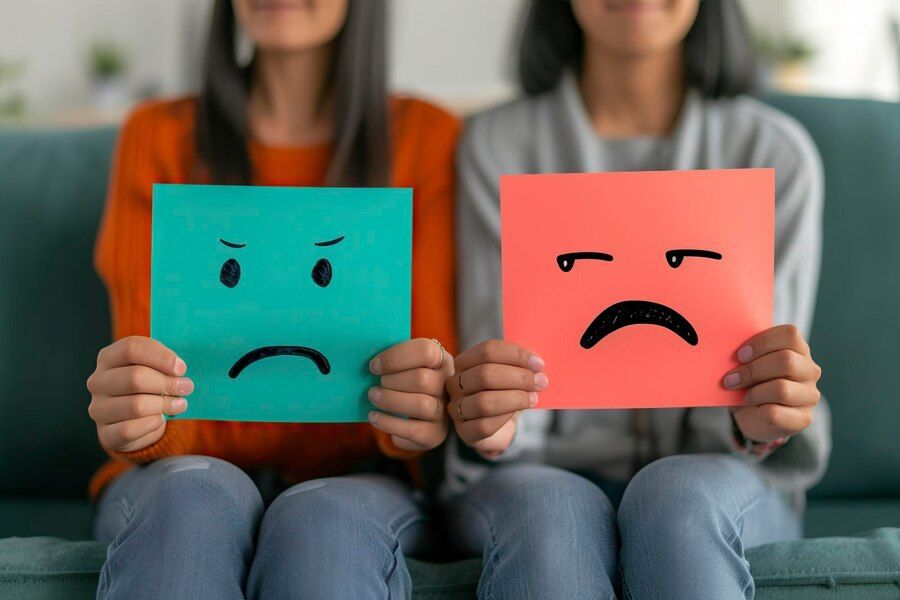Understanding Emotional Abuse and the Importance of Seeking Help
Emotional abuse is a form of abuse that can have severe and lasting effects on an individual's mental and emotional well-being. Unlike physical abuse, emotional abuse involves psychological manipulation and can be harder to identify. This article explores the signs of emotional abuse, its impact, and the critical importance of seeking help.

What is Emotional Abuse?
Emotional abuse involves behavior that diminishes a person's sense of self-worth and undermines their mental health. It can occur in any relationship, including intimate partnerships, family dynamics, friendships, and professional environments. Emotional abuse can include, but is not limited to:
- Verbal Aggression: Name-calling, yelling, and making demeaning or humiliating remarks.
- Control and Manipulation: Isolating the individual from friends and family, controlling their actions, and manipulating situations to maintain power.
- Gaslighting: Making the victim question their reality and sanity by denying facts or events.
- Threats and Intimidation: Threatening harm to the individual or their loved ones, or using intimidation tactics to instill fear.
- Constant Criticism: Undermining the individual's confidence through persistent criticism and fault-finding.
Signs of Emotional Abuse
Recognizing emotional abuse is crucial for taking steps toward recovery. Common signs include:
- Low Self-Esteem: Feeling worthless, helpless, or constantly doubting oneself.
- Isolation: Being cut off from friends, family, and social activities.
- Fear and Anxiety: Feeling constantly on edge, afraid of the abuser's reactions or threats.
- Depression: Persistent sadness, hopelessness, and a lack of interest in activities once enjoyed.
- Indecisiveness: Struggling to make decisions due to constant criticism or manipulation.
Impact of Emotional Abuse
The effects of emotional abuse can be profound and long-lasting. Individuals may experience:
- Mental Health Issues: Anxiety, depression, post-traumatic stress disorder (PTSD), and other mental health conditions.
- Physical Health Problems: Chronic stress from emotional abuse can lead to physical health issues such as headaches, digestive problems, and weakened immune function.
- Diminished Self-Worth: A pervasive sense of low self-esteem and self-doubt can impact every aspect of life, from personal relationships to career success.
The Importance of Seeking Help
Seeking help is vital for anyone experiencing emotional abuse. Here’s why:
- Validation and Support: Professional counselors, therapists, and support groups can provide validation and support, helping individuals understand they are not alone.
- Safety and Well-Being: Seeking help can provide strategies for ensuring safety and well-being, including creating a plan to leave an abusive situation.
- Healing and Recovery: Mental health professionals can guide individuals through the healing process, helping them rebuild their self-esteem, develop healthy coping mechanisms, and recover from the trauma of abuse.
- Empowerment: Accessing resources and support networks empowers individuals to take control of their lives and break free from the cycle of abuse.
How to Seek Help
If you or someone you know is experiencing emotional abuse, it’s crucial to take action:
- Reach Out to Trusted Individuals: Confide in friends, family, or colleagues who can provide support and understanding.
- Contact Professional Help: Seek counseling or therapy from licensed mental health professionals experienced in dealing with abuse.
- Join Support Groups: Participate in support groups for survivors of abuse, where you can share experiences and gain strength from others.
- Access Resources: Utilize resources from organizations dedicated to helping abuse survivors, such as hotlines, shelters, and advocacy groups.
Emotional abuse can have devastating effects, but seeking help is a powerful step toward healing and recovery. Remember, you deserve to live free from fear and manipulation, and support is available to help you reclaim your life. If you or someone you know is in an abusive situation, don't hesitate to reach out for help.
CATEGORIES
We Work Together to Solve Current Challenges
CONTACT US
1-571-330-2829
office@ariseccc.com
10801 Johnston Road
Suite 210 Charlotte NC
28226-4558
USEFUL LINKS
STAY INFORMED
You need a helping hand with your project?
We will get back to you as soon as possible
Please try again later
COUNSELING CENTER HICKORY & CHARLOTTE NORTH CAROLINA










